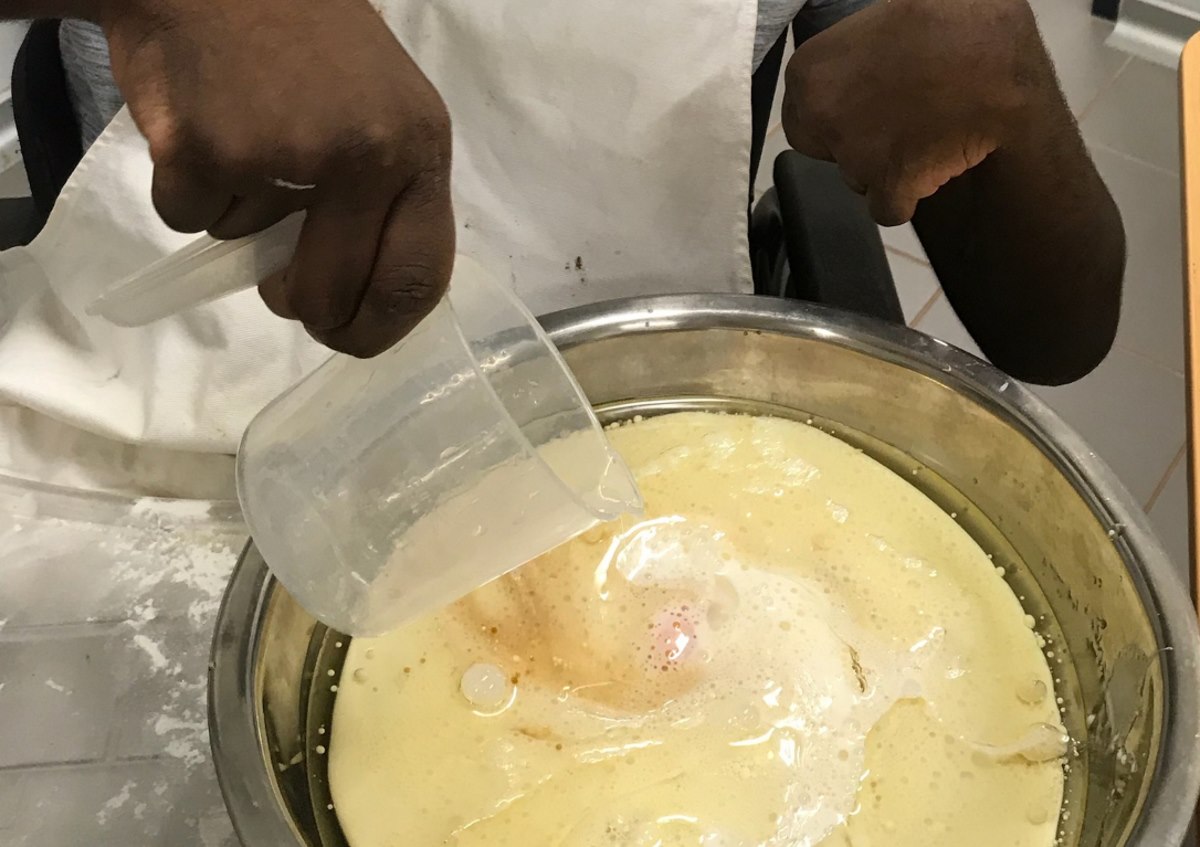
Alicia Hutchinson a Swinburne University Master of Occupational Therapy student has taken up a Flinders NT-supported placement with East Arnhem Regional Council, Aged and Disability Services. The student grapevine was what initially attracted Alicia to seek a placement in a remote community within the Northern Territory and a desire to participate in a challenging area of service delivery.
Alicia’s supervisor, Sharon Wunungmurra is the only permanent community-located Occupational Therapist in East Arnhem Land and is based at Gapuwiyak. With its beautiful Lake Evella, the Gapuwiyak township is located 214 kms south west of Nhulunbuy accessible by road (weather permitting) and air. With a population of around 900 including 94% Indigenous and a main language of Djambarrpuyngu, Gapuwiyak has a primary and secondary school, health clinic, art gallery, police station and council services but not a lot more.
Alicia has been able to engage with individual clients one-on-one, participate in the pre-school environment assessing children under the guidance of her supervisor, and she has begun creating resources to be used by staff and carers long after she has completed her placement.
She has also been working alongside the aged and disability clients developing their independent living skills, including self-care, cooking and shopping, budgeting, and leisure activities such as painting and gardening.
The most notable adjustment Alicia has needed to make relates to cultural responsibilities. As she explains, “Things don’t quite happen as expected. You can plan as much as you want to undertake assessments or work with the clients but you sometimes have to come up with Plan B or Plan C because of cultural impacts such as funerals within the community”.
Alicia says she has needed to slow down, simplify her sentence structure and check in with the clients to ensure that they understand. English may be anywhere from third to sixth language so this is very important to garner the support of the client, their family and support workers. You also need to allow Yolngu speakers the chance to process what you are saying, convert it to Yolngu Matha, formulate the answer, and then convert it back to English.
When questioned about whether the remoteness was a challenge Alicia responded, “No, It is actually very peaceful here. The community is really friendly and there is always something to do”. She walks, goes fishing, attends the art centre every Saturday for coffee and cake, helps out at the Sport and Rec movie nights and discos, and plays with the children in the community. She has been invited for meals and games nights and trips to Balanda Mirri a local natural, (Crocodile-free at the moment), watering hole.
“I guess I have been getting to know people in the community. That is how I have been spending most of my free time. I also have a mantra which is if I am included to do something then I don’t say no. I am remaining open to the possibilities of community life and participating.”
Students can make a difference in small communities. The most rewarding part of Alicia’s placement has been her ability to offer one-on-one interactions and therapy resulting in individual progression at a much faster rate. Resources are short in most rural and remote communities, no more so than communities like Gapuwiyak. “We also bring a fresh set of eyes and perspective to the tasks”, Alicia said.

